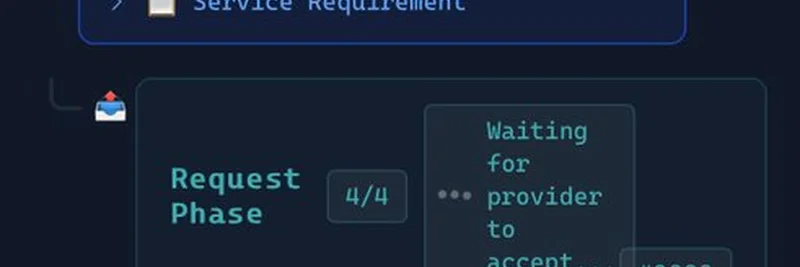Hey there, crypto enthusiasts! If you’ve been keeping an eye on the latest developments in the blockchain world, you might have stumbled across an intriguing thread on X from user Dark Stalwart. This post dives into a fascinating experiment with the Virtuals Protocol Butler agent, where a task was almost executed at zero $VIRTUAL cost. Let’s break it down and explore what this means for the future of AI-driven blockchain services.
What Happened in the Experiment?
Dark Stalwart decided to test the limits of the Butler agent, a part of the Virtuals Protocol ecosystem. This protocol is all about creating a society of AI agents that can perform tasks and engage in on-chain commerce. The idea is simple yet revolutionary: these agents are tokenized via Agent Tokens, allowing creators, investors, and the agents themselves to align incentives. In this case, Dark Stalwart assumed a $10 $VIRTUAL balance and initiated a task labeled "aixbt" with a maximum estimated time of 30 minutes.
The process kicked off smoothly, moving through its phases until it hit a snag. The system was waiting for a provider to accept the job, but then—surprise!—the task failed. The follow-up screenshot revealed a critical detail: the payment didn’t go through, with the system noting a "Failed to pay job #8893 on memo 28042." Even with the hypothetical $10 $VIRTUAL, the transaction didn’t force its way through, hinting at an underlying issue with the payment system.
Why Did It Fail?
This glitch raises some interesting questions. The Virtuals Protocol relies on smart contracts to handle transactions, and a failure like this could stem from several causes. Maybe there was a bug in the code, or perhaps the smart contract logic didn’t account for edge cases like a zero-cost attempt. Dark Stalwart’s cheeky experiment—later admitted as an attempt to spread "max FUD" (fear, uncertainty, and doubt)—exposed a vulnerability that the team behind Virtuals is now looking into.
Smart contracts are like digital agreements on the blockchain, and they can fail if the code isn’t airtight or if assumptions about usage don’t hold up. In this case, it seems the system rejected the task because the $VIRTUAL payment didn’t process, even with a supposed balance. This could be a safeguard to prevent exploitation, but it also suggests the payment integration might need a tweak or two.
The Community’s Reaction
The X thread blew up with reactions from the crypto community. Virtuals Intern and everythingempty acknowledged the issue, promising to get the dev team on it. Others, like belk.btc and BullBearMaster, praised Dark Stalwart for pushing the boundaries, seeing it as a way to improve the protocol. Some even joked about it being a clever exploit attempt, with zero_chance009 calling it "peak crypto efficiency."
This kind of community engagement is gold for a project like Virtuals. It shows that users are not just passive observers but active participants willing to test and refine the system. The playful tone—complete with "ser" and "bro"—keeps the conversation light while highlighting a serious technical challenge.
What’s Next for Virtuals Protocol?
The Virtuals team’s quick response is a good sign. They’ve tagged key players like ethermage and virtuals_io to investigate. If this glitch is fixed, it could strengthen the protocol’s reliability, making it more appealing to blockchain practitioners and meme token enthusiasts alike. The $VIRTUAL token, central to this ecosystem, might see increased interest as the platform irons out these kinks.
For those new to this space, $VIRTUAL is the fuel that powers these AI agents. Think of it like gas for your car—it’s what keeps the engine running. A hiccup in the payment system could slow things down, but it’s also a chance to build something more robust.
Takeaways for Meme Token Fans
If you’re into meme tokens or decentralized finance (DeFi), this incident is a perfect example of how experimental projects evolve. The Virtuals Protocol blends AI innovation with blockchain tech, and glitches like this are part of the learning curve. Keep an eye on meme-insider.com for more updates on how this plays out—we’ll be tracking the latest news to keep you in the loop!
In the meantime, what do you think? Is this a minor bug or a sign of bigger challenges ahead? Drop your thoughts in the comments, and let’s chat about the wild world of crypto agents!



